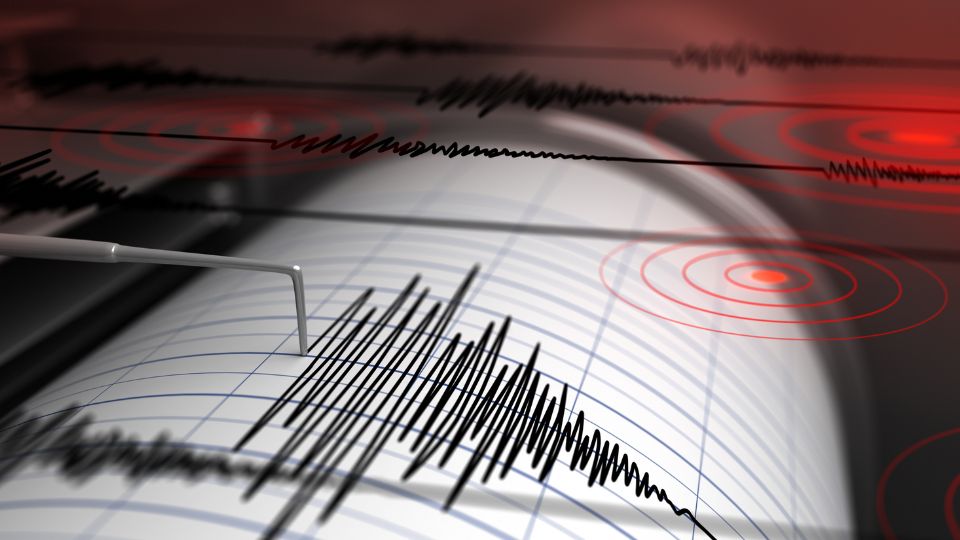On Friday, September 28, 1998, Pennsylvania had its biggest earthquake ever. It measured 5.2 on the Richter scale. The epicenter was found close to Pymatuning Lake in Crawford County, which is in the northwest part of the state. The earthquake caused some small damage to buildings, disrupted water wells, and one person got hurt. The earthquake also caused a number of smaller earthquakes that continued for several months. The earthquake was felt in places like New York, Ohio, Michigan, and Canada.
What caused the earthquake?
Pennsylvania doesn’t have a lot of earthquakes, but it can still experience them sometimes. The state is located in the Appalachian Plateau, which was created by ancient tectonic plate collisions. When these collisions happen, they can cause faults and fractures in the earth’s crust. Sometimes, these faults can move and release energy, causing earthquakes. The Pymatuning earthquake happened on one of these faults, called the Lake Erie-Lake Ontario fault system.
The cause of the earthquake is not yet fully understood, but some experts believe that human activities like mining, fracking, or water injection might have played a role. These activities can affect the stress and pressure underground, which could potentially cause or make earthquakes stronger. However, there is currently no solid proof to support this idea, and further research is necessary to fully understand the impact of human-caused earthquakes in Pennsylvania.
What were the effects of the earthquake?
The Pymatuning quake was the strongest and most widely felt earthquake ever recorded in Pennsylvania. However, it did not cause significant damage or injuries. The earthquake was not very deep, only about 3 miles, so it didn’t have as much potential to cause damage. The most frequent damages included walls with cracks, windows that were broken, chimneys that fell, and furniture that was toppled.
As a safety measure, certain buildings like schools, churches, and hospitals were emptied of people. The earthquake also impacted the water supply in the area. Many wells became cloudy, muddy, or completely dried up. Some people living in the area noticed that their water tasted, smelled, or looked different than usual.
Also read: These are America’s Most and Least Popular State Governors
The earthquake also affected people’s mental and social well-being, as it made them feel scared, anxious, and curious. A lot of people were very surprised by the event because they didn’t think there would be such a powerful earthquake in Pennsylvania. Some individuals believed it was either a bomb, a plane crash, or a thunderstorm.
Many people were very interested and curious about the phenomenon, and they wanted to find out more about it. The earthquake received a lot of attention from the media, both locally and nationally. It also led to discussions about being prepared for earthquakes and staying safe.
What did we learn from the earthquake?
The Pymatuning earthquake was a unique and interesting event that taught us a few things about earthquakes in Pennsylvania. The information revealed that the state does experience earthquakes, but at a relatively low to moderate level of risk. The study also revealed that the state has a complicated and not well-understood fault system, which could be affected by both natural and human factors.
It also revealed that the state is not well equipped for earthquakes, as many buildings and infrastructure are not built to withstand strong shaking. The study also revealed that the general public lacks knowledge and education about earthquakes. They require more awareness and guidance on how to respond to and deal with earthquakes.
The Pymatuning earthquake was a sudden event that made Pennsylvania realize that earthquakes can occur in any place, at any time, and without any prior notice. It also gave a chance for scientists, engineers, policymakers, and citizens to collaborate and enhance the state’s ability to withstand and prepare for earthquakes. Studying the earthquake and its effects helps us learn more about the risk of earthquakes and how vulnerable the state is to them. This knowledge allows us to take steps to decrease the risk and vulnerability.
We can improve earthquake safety and security in the state by educating the public, providing resources, and sharing information to increase awareness and preparedness. To make sure Pennsylvania is prepared for the next major earthquake, no matter when or where it happens.



Leave a Reply